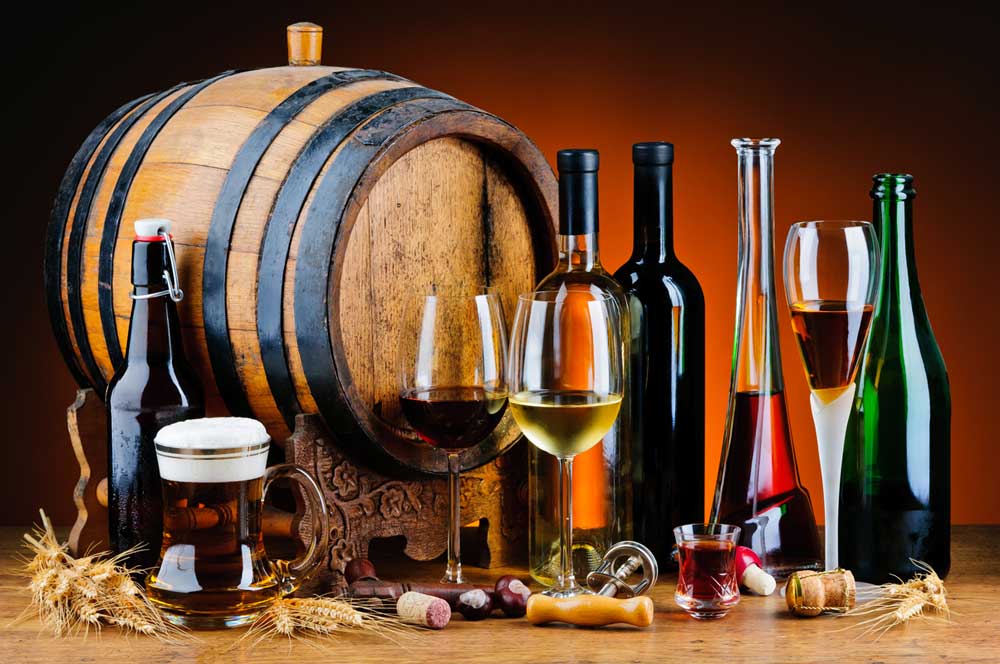Now we offer alcohol and tobacco customs clearance, we thought it would be good to tell you a bit about these goods and the hoops you have to jump through when importing and exporting them.
Alcohol and tobacco are excise goods. As such, UK excise duty is chargeable when imported into or produced in the UK and becomes payable when the goods are released for consumption in the UK.
Let’s look at some special procedures that apply when holding, trading, and moving excise goods, whether domestically or internationally.
How is excise duty on Alcohol and Tobacco calculated?
For alcohol products (such as beer, wine, cider and spirits), excise duty is calculated as a rate payable per litre of alcohol for spirits, per hectolitre of product for wine and cider, and by hectolitre per cent of alcohol in the product for beer.
When it comes to tobacco (cigarettes, cigars, hand-rolling tobacco, other smoking tobacco and chewing tobacco), the duty is calculated as a percentage of the retail price plus a charge per thousand cigarettes. Excise duty on other tobacco products is calculated as a charge per kilogram of product.
Importing Excise Goods
When importing excise goods, businesses must pay three separate taxes:
- UK Customs duty – paid on imports based on the customs value of the goods, not the quantity
- UK Excise duty – payable on certain types of goods, at different rates according to the kind of product, when they are manufactured or imported
- VAT – payable based on the value of the goods imported, including any customs or excise duty that is due (the trader pays VAT on the excise duty as well as VAT on the cost of the goods)
Paying Customs and Excise Duties
If you import goods (or remove them from a customs or excise warehouse), you can arrange for the payment of duties to be deferred. This means that the duty is deferred via a legal arrangement rather than paying at the time of importation or removal from a customs or excise warehouse.
However, if you want to make deferred payments of excise duties due at import or on removal from UK production premises, you must provide a guarantee.
Importing Excise Goods into the UK
If you are importing excise goods into the UK, you must make sure the imported goods are presented to HMRC at the place of importation with an import declaration (Single Administrative Document – SAD). As the importer, you have three choices:
- Pay all duties at the time of importation via the import declaration
- Suspend the customs duty and Import VAT (the goods are not excise goods until they have been legally imported into the EU) and place the goods into a customs suspensive arrangement
- Pay all the import duties and suspend the excise duty by immediately placing the goods into an excise duty suspension arrangement
What is Excise Warehousing?
An excise warehouse is a secure location approved by HMRC for the deposit, keeping and securing excise goods without paying the excise duties.
HMRC approval allows an authorised warehouse keeper to receive, store and despatch excise goods in duty suspension at their approved warehouse premises.
When the goods are released from the warehouse, the excise duty must be paid.
Third-party owners of excise goods also have to be approved by HMRC to deposit their goods in an excise warehouse. If they don’t have a fixed UK address, they must appoint a UK-based duty representative to act on their behalf.
The Final Word on Alcohol and Tobacco Customs Clearance
If that’s sound a lot to get your head around, that’s because it is. But never fear; now we are offering alcohol and tobacco customs clearance, we can guide you through the process to make sure you comply with all regulations.
Smart Directions offers its clients a complete alcohol and tobacco logistics service and customs clearance. Talk to the team today on 01442 507 240 for more information.

